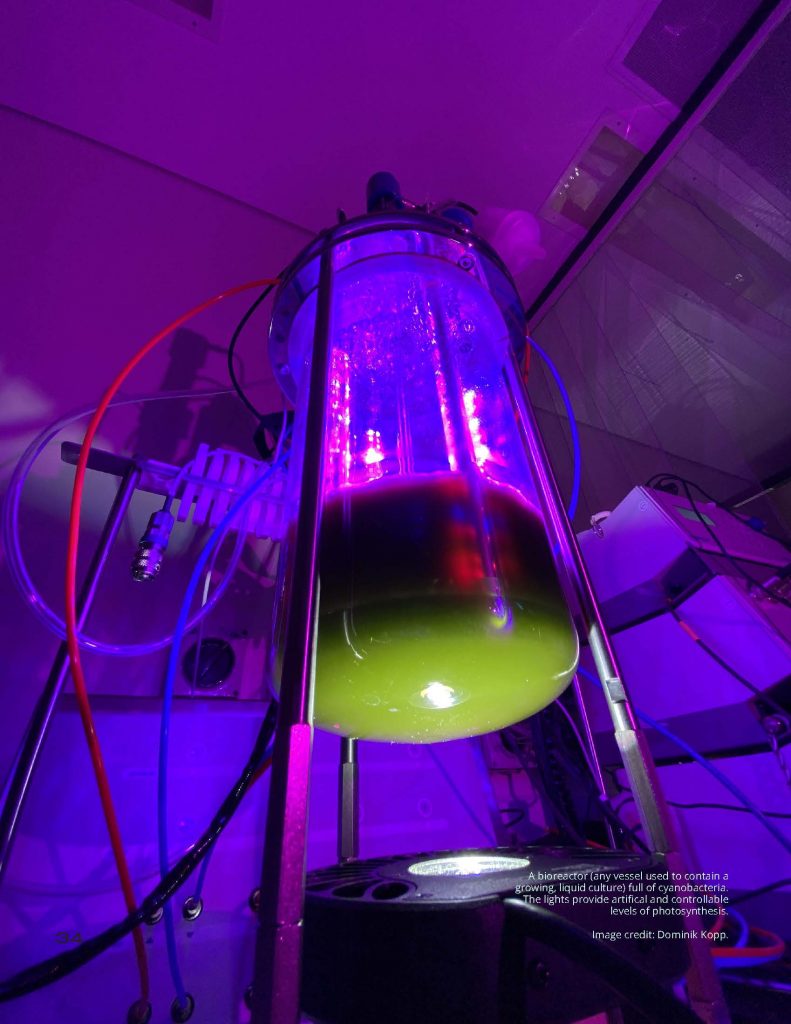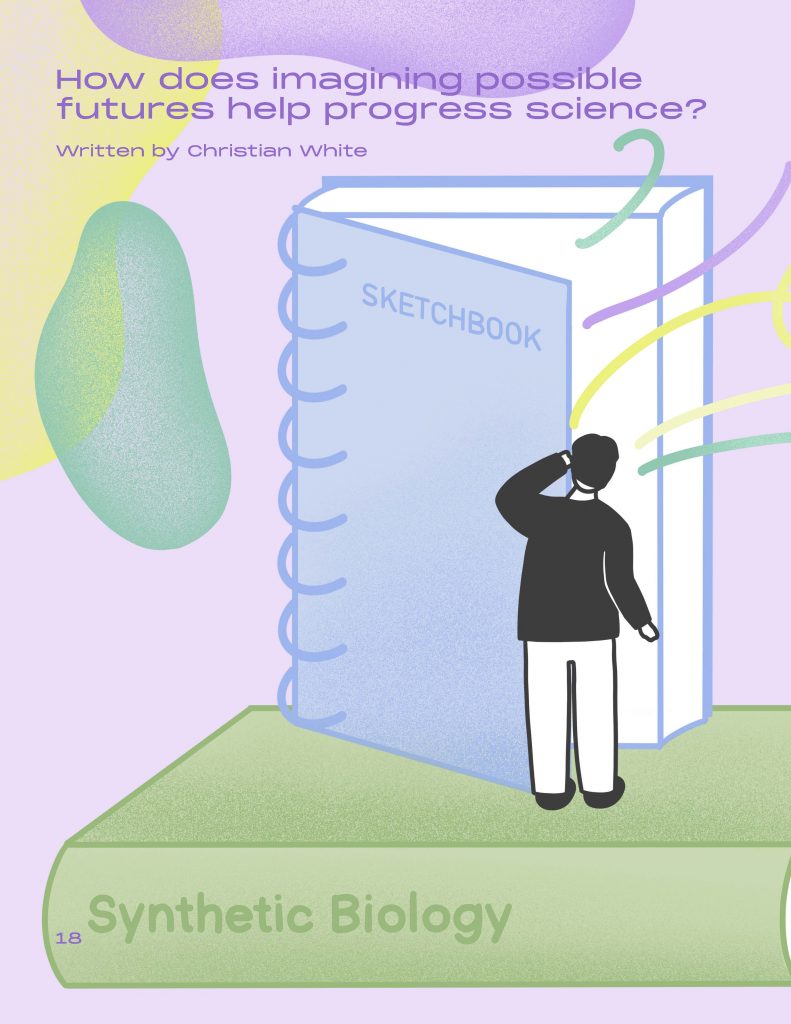When the pandemic interrupted the important work of the UTS Australian Synbio Challenge (ASC) team, they adapted and went on to create SYNTHESIS magazine: a new publication focusing on synthetic biology (synbio). We talked to UTS Chancellor’s Fellow Dr Andrew Care, a researcher blending synbio with nanomedicine in the Faculty of Science, about the founding of the magazine and how UTS staff and students are building a synbio community.
Firstly, what exactly is synthetic biology, or should we say, ‘synbio’?
Nature has the ability to make many of the products that industry already manufactures, offering sustainable alternatives for producing nearly everything humans consume, from textiles and fuels to foods and medicines. Hence, synthetic biology, often referred to as ‘synbio’, a scientific field that re-designs and re-engineers biological systems (e.g., microorganisms), is perfectly poised to create disruptive technologies, processes, and products that will help us secure an environmentally-friendly and sustainable future.

Tell us more about SYNTHESIS magazine…
In March 2022, Australia’s first-ever synbio-meets-design magazine SYNTHESIS was launched. A modern and stylish publication, SYNTHESIS comprises diverse content, including a pop-science article on synbio; an interview with a local synbio start-up; discussions with designers using synbio into their creative works; perspectives from an Indigenous practitioner on the cultural considerations for synbio technologies; an expose on the problematic use of greenwashing to market the synbio industry, and a unique how-to-guide to help scientists and designers collaborate better!

How was SYNTHESIS magazine founded, who are the team behind it?
In 2021, I assembled a team of students to represent UTS in the Australasian Synbio Challenge (ASC). At first, the team comprised energetic science students passionate about research and keen to drive their very own synbio project. I then met with Dr Jestin George, who was coordinating the Biodesign program in the Faculty of Design, Architecture and Building. Together, we introduced design students and practices into the UTS ASC team, creating a unique interdisciplinary collaboration between students. Herein, the scientists would perform experiments in the laboratory while the designers would work with them to understand the cultural and societal impact of their research.
Early on, everything was going to plan, but then disaster struck: COVID lockdowns! At almost the exact moment the scientists were meant to start lab work, the Sydney lockdowns instead threw the whole ASC team into disarray, leaving them unsure what to do and how move forward. As the lockdowns continued to be extended, it became clear that the team would not be entering the lab at all. However, they had noticed more design-driven conversations happening during online group meetings. And so, the team picked themselves up, pivoted their project, and conceptualised, designed, and wrote SYNTHESIS magazine!

What can people expect in future issues of SYNTHESIS magazine?
The editorial team envisages that future issues of SYNTHESIS will help foster inclusivity and diversity within the Australian science community, inspire a genuine exploration of the social and cultural dimensions of technologies, and provide a contemporary and accessible common ground for scientists and designers to drive interdisciplinary innovation in Australia.
SYNTHESIS emerged from participation in the Australasian SynBio Challenge (ASC) – tell us a little about the challenge and how UTS students might get involved.
The ASC is a relatively new competition between universities that aims to grow the synbio community in Australia and its neighbours. Here, multidisciplinary student teams design, build, and test a nature-inspired technology intended to solve a real-world challenge. There are also entrepreneurial aspects to the ASC, including pitching ideas to investors, which fosters the creation of “bio-innovators” that will drive the future of the synbio industry.
The students representing UTS in this year’s ASC have already conceptualised a brand new COVID-19 vaccine that can be quickly adapted to fight new variants when they emerge, so watch this space!
Final year UG and PG (coursework) students from across the UTS, whether they are from Science, Engineering, Art, or Business Faculties are eligible for the 2023 ASC Team. Open information sessions will be held in Feb/March 2023, so keep an eye out for these.

Read SYNTHESIS magazine
SYNTHESIS Magazine is freely available to read and download on the ARC Centre of Excellence in Synthetic Biology website.
You can follow the founders and editors of SYNTHESIS magazine online at @Synthesis_Aus on Twitter and Instagram, and follow the founders and editors at @Dr_Andrew_Care and @jestinARgeorge.
